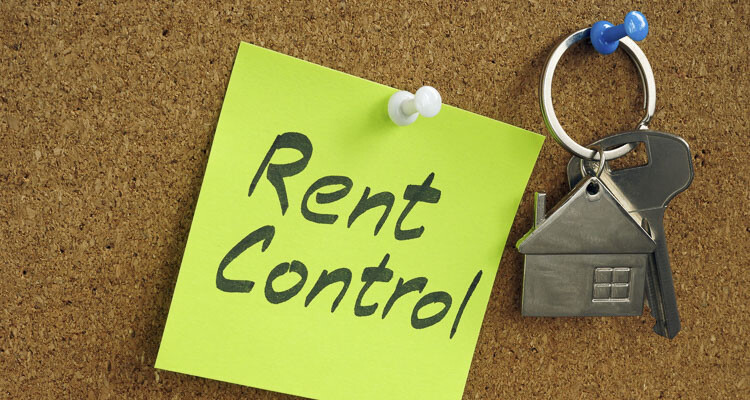
Mark Harmsworth explains that House Bill 2114 will not help reduce rents in the rental property market
Mark Harmsworth
Washington Policy Center
Tuesday night, House Bill 2114 (HB 2114), otherwise known as rent control, passed the Washington State House of Representatives on a party line vote and now heads to the Senate for consideration.

Backers of HB 2114 think it’s a great deal for tenants. They’re wrong. Rent control decreases available rental property and creates ‘apartment lock’ – people in a rent-controlled apartment don’t want to move, fearing they’ll lose the sweetheart deal the law provides. That means normal market turnover is blocked, and young apartment-seekers have fewer choices, and must move farther out or pay higher rents.
HB 2114 would limit rent and fee increases to 7% and would increase the notification period to 180 days for increases over 3%. The tenant would be able to terminate a lease within 20 days and if the increase is over 7%, the tenant would receive damages and up to three months’ rent.
HB 2114 would also;
- Cap late fees at $10, which removes any incentive to pay rent on time.
- Limit move in fees and security deposits to 1 months’ rent.
- Exempt Government housing authorities from rent control.
Rent control reduces access to new affordable housing. When the government imposes price controls, supply quickly dries up. Imagine the government slapped a price control on cell phones to make them “affordable” – obviously new smart phone offerings would quickly disappear.
Instead, policymakers should make housing more affordable by cutting property taxes and pointless permitting rules that make building homes so expensive. If the supply of rental property increases, rental costs will go down.
Rental property owners are likely to increase rents at the maximum 7% allowed each year to cover future, unanticipated costs whereas today, they may choose no increase to encourage a good tenant to stay.
People should oppose the phony promise of rent control, not only because it’s ridiculous and impractical, but because it is so obviously unfair. Politicians should not pass arrogant laws that disrupt healthy market signals, block the construction of more housing, and insult people’s dignity. Bills, such as Senate Bill 6136, whose title includes the words, ‘for the privilege of providing property for rent’, illustrate how disconnected lawmakers are from the rental property owner’s nightmare of trying to rent their properties without losing money.
The punitive laws coming out of Olympia are causing property owners to sell rental properties. Seattle lost 3,000 rental units in a 6-month period in 2022 primarily because of punitive legislation and regulations in Washington. HB 2114, and other rent control measures create a hostile environment for property owners.
House Bill 2114 will not help reduce rents in the rental property market. It will reduce available rental properties, drive up rents and create more homelessness.
Mark Harmsworth is the director of the Small Business Center at the Washington Policy Center.
Also read:
- Letter: ‘There will be consequences’Hazel Dell resident Bob Zak criticizes Democratic lawmakers for advancing ESSB 5181, arguing it undermines parental rights and defies biblical principles.
- Op-Ed: La Center Schools — Committed to families and their childrenIn a public letter, the La Center School Board and Superintendent Peter Rosenkranz affirm their commitment to supporting families and honoring both state law and community values amid state-level scrutiny.
- Letter: Mayor blames others on homelessness problem in Vancouver while she has enabled a lawless encampment zoneVancouver resident Peter Bracchi urges city leaders to enforce laws and end permissive policies that have allowed unsafe encampments to overrun public spaces near the Share House.
- Letter: ‘Look it up for yourself’Camas resident Anna Miller encourages skeptics of Elon Musk’s claims about government waste to do their own research using official resources.
- Opinion: Defending the indefensibleNancy Churchill argues that Washington’s lawsuit against a sheriff cooperating with ICE reveals a deeper political agenda that puts public safety at risk.










